royalrhythm
A writer that wastes all her time on youtube | 20s
83 posts
Latest Posts by royalrhythm
So I thought this was commonly known internet navigation (but apparently it might just be those of us who have been using the internet since the 90's who still know it). Or so it seems based on... a grumpy comment I got.
When you see an arrow like this:

It means you click it to expand out a hidden section.

It's an accordion section/menu! It's useful in web design to hide information that may be overwhelming under specific headers so people can only see what they need.
Here I'm using it for people who need the content warnings to be able to check, but for those who don't need them and don't want to be spoiled to just move right past without accidentally reading anything.
It's still the user's responsibility to click the arrow and read things as they need! But it is all warned. (And, yes, the all encompassing issues are already a tag on the fic, I'm just providing additonal warnings per chapter.)
A Flirting Guide For Writers (And Real World Usage)
I reblogged a post a day or so ago, and the result (which made me sad) was mostly people saying that they feel they cannot flirt (and therefore cannot write it effectively).
So I thought I’d share my own, admittedly limited, knowledge (under the guise of writing advice) so that you can all write kick-ass romance and show your feelings like the boss-ass-bitches you are!
The Basics; Eye-Contact, Personal Space, Body Language
The thing about flirting is that most of it is non-verbal, and the world is split between those writers who find this part the easiest, and those who find it the most incomprehensible.
The problem is that it’s all dependent on a fine, mostly unspoken, line which makes the interaction creepy if crossed. When writing a character who is trying to flirt with someone, or when trying to flirt with someone yourself, you need to keep three main things in mind; personal space, body language, and potential restriction. This is especially important for men. The problem is that this is mostly instinctual, and so it can be hard to write if you haven’t had time to develop the right skills yourself.
Personal space
When trying to show that your character is flirting you need to make a note of them moving into the other person’s personal space but not too much. Consider this; someone leaning into your space just a little to speak to you versus someone being practically nose to nose with you. One catches your attention, the other is uncomfortable at best and intimidating at worst. The idea is to lean in enough to show interest and create a sense of intimacy, without becoming overbearing or threatening. As a rule, I find that I begin to feel uncomfortable if a man I’m not sure of gets closer than the distance it would take to perform a ballroom Waltz.
To get an idea of how that looks, hold up your hand at arms length as if pushing someone away or pressing against a wall. Now slowly bend your elbow until the point sits just under your breast or pectoral muscle.
That’s the maximum personal space invasion I allow from people I don’t know well. In my experience, this is common to many women, though others prefer more space. Likewise, in my experience, men I have met seemed perfectly comfortable with me being closer than even that, but I am small, relatively unthreatening, and we have to allow for the fact that we were in the position of viewing each other as romantic interests. Men may prefer more space from other men, or from individuals that they do not see in a romantic light already. This changes from person to person, and noting your characters preference is a good way to show what kind of person they are.
Eye-Contact
Another fundamental which relies on instinct subtlety; conventional wisdom says that you should make eye-contact in order to show interest. Actual wisdom will also tell you that too much becomes intense and a little creepy. If your character holds someone’s eye for too long its becomes fixative rather than flirtatious; it becomes staring. Depending on your character and their interest this can either read as obsessive, creepy, or aggressive.
Flirtatious eye contact can take a few forms;
1 - the “getting caught” method where a person looks at someone and quickly looks away again. When caught have your character (or yourself) look away quickly and then back, hold eye contact for a few moments and then acknowledge the other person. A smile, wink, or nod will suffice for this.
2 - the “lash” method where someone, usually a woman, catches their crushes eye, looks down, and then back up from under the lashes. Also very effective when done by men with big eyelashes.
3 - the “full cheese” method by which someone winks, grins, or wiggles their eyebrows. This is effective when used sparingly.
If your character also touches the person they are flirting with lightly, this will build tension. The touch should be gentle, but obviously deliberate. Avoid possessive gestures like gripping or pulling, however.
Body Language
When flirting, the body language of both people is important; your character should watch their crush for signs of interest and/or discomfort.
Positive signs; leaning in, touching, playing with hair, smiling, licking or biting lips, tilting their head slightly, mirroring.
Negative signs; leaning away, crossing arms, pursing lips, refusing to make eye-contact, raising their shoulders, crossing their legs away from the other person, frowning, clenching jaw, balling fists.
This body language can apply to both characters in the scene.
Advanced Techniques; Verbal Cues, Suggestions, And Other Senses
This is the shit I thrive on, as a writer you will probably feel the same way; I notice the sounds, smells, and textures of another person as well as what they say (in fact, when you read my work you’ll notice that the smell of any romantic lead is noted upon more than once).
Verbal Cues
This is the thing that most people focus upon when it comes to discussions or attempts at flirtation. The verbal sparring that comes with flirting is what really gets our stomachs churning and our hearts pulsing… but why are some people so naturally good at it, while others are… less so?
And why does some of the most vapid and run-of-the-mill stuff seem to work between the right people?
Well, the sad news for your unlovely characters is that physical attraction makes us more likely to respond to even the most poorly constructed of verbal flirtation. Then again, beauty is in the eye of the beholder so even the least pretty of characters could find themselves flirting up a storm with the right person.
Verbal cues include;
- Gentle teasing
- Compliments
- Inside jokes
- Using someone’s name (yes, really)
- Asking questions and responding in a thoughtful way
- Sexual innuendo (when used tastefully and sparingly)
Suggestion
This is the easiest to miss or overshoot because it’s a combination of everything else we’ve already covered. For example, your character saying to a friend,
“I’m just going to hop into the shower, talk soon.”
Is not a suggestive statement. Now imagine your character flirting with someone on the phone before sighing and saying,
“I’m going to take a shower… I’ll speak to you soon, ok?”
The difference is subtle but important; the second suggests that they don’t want to stop talking to the other person, that they definitely want to speak to them again as soon as possible, and subtly encourages the other person to consider them in the shower. You see?
Easy to miss, easy to fudge. Suggestion is hard to pull off, and hard to write, but think of it this way - suggestion;
1) Encourages the other person to think of you/your character in an intimate way
2) Implies enjoyment in and desire for their presence
3) Is open-ended and encourages reciprocation
The Other Senses
This is not so much flirting, but the act of making your character/yourself as appealing as possible to another. Personal hygiene, a good fashion sense, and good manners are a part of this.
But -
When writing about this you should not discuss it directly unless your character is making a conscious choice. Instead, focus on the character that yours is focussed upon.
- How do they smell?
- What are the textures of their clothes?
- What manners do they affect?
- Does their voice have a texture?
- Do they touch your character a lot?
- Do they note upon your characters smell or noticeably try to take in their smell?
- Do they react noticeably to your character’s voice or mannerisms?
This is just a basic guide, of course, but if you get this down you’re in a good position to build romantic tension in every walk of life!
If you found this post useful and you want to help keep me writing, you can support me through Kofi!
Words to replace said, except this actually helps
I got pretty fed up with looking for words to replace said because they weren’t sorted in a way I could easily use/find them for the right time. So I did some myself.
IN RESPONSE TO Acknowledged Answered Protested
INPUT/JOIN CONVERSATION/ASK Added Implored Inquired Insisted Proposed Queried Questioned Recommended Testified
GUILTY/RELUCTANCE/SORRY Admitted Apologized Conceded Confessed Professed
FOR SOMEONE ELSE Advised Criticized Suggested
JUST CHECKING Affirmed Agreed Alleged Confirmed
LOUD Announced Chanted Crowed
LEWD/CUTE/SECRET SPY FEEL Appealed Disclosed Moaned
ANGRY FUCK OFF MATE WANNA FIGHT Argued Barked Challenged Cursed Fumed Growled Hissed Roared Swore
SMARTASS Articulated Asserted Assured Avowed Claimed Commanded Cross-examined Demanded Digressed Directed Foretold Instructed Interrupted Predicted Proclaimed Quoted Theorized
ASSHOLE Bellowed Boasted Bragged
NERVOUS TRAINWRECK Babbled Bawled Mumbled Sputtered Stammered Stuttered
SUAVE MOTHERFUCKER Bargained Divulged Disclosed Exhorted
FIRST OFF Began
LASTLY Concluded Concurred
WEAK PUSY Begged Blurted Complained Cried Faltered Fretted
HAPPY/LOL Cajoled Exclaimed Gushed Jested Joked Laughed
WEIRDLY HAPPY/EXCITED Extolled Jabbered Raved
BRUH, CHILL Cautioned Warned
ACTUALLY, YOU’RE WRONG Chided Contended Corrected Countered Debated Elaborated Objected Ranted Retorted
CHILL SAVAGE Commented Continued Observed Surmised
LISTEN BUDDY Enunciated Explained Elaborated Hinted Implied Lectured Reiterated Recited Reminded Stressed
BRUH I NEED U AND U NEED ME Confided Offered Urged
FINE Consented Decided
TOO EMO FULL OF EMOTIONS Croaked Lamented Pledged Sobbed Sympathized Wailed Whimpered
JUST SAYING Declared Decreed Mentioned Noted Pointed out Postulated Speculated Stated Told Vouched
WASN’T ME Denied Lied
EVIL SMARTASS Dictated Equivocated Ordered Reprimanded Threatened
BORED Droned Sighed
SHHHH IT’S QUIET TIME Echoed Mumbled Murmured Muttered Uttered Whispered
DRAMA QUEEN Exaggerated Panted Pleaded Prayed Preached
OH SHIT Gasped Marveled Screamed Screeched Shouted Shrieked Yelped Yelled
ANNOYED Grumbled Grunted Jeered Quipped Scolded Snapped Snarled Sneered
ANNOYING Nagged
I DON’T REALLY CARE BUT WHATEVER Guessed Ventured
I’M DRUNK OR JUST BEING WEIRDLY EXPRESSIVE FOR A POINT/SARCASM Hooted Howled Yowled
I WONDER Pondered Voiced Wondered
OH, YEAH, WHOOPS Recalled Recited Remembered
SURPRISE BITCH Revealed
IT SEEMS FAKE BUT OKAY/HA ACTUALLY FUNNY BUT I DON’T WANT TO LAUGH OUT LOUD Scoffed Snickered Snorted
BITCHY Tattled Taunted Teased
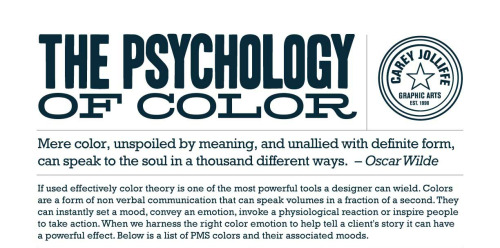



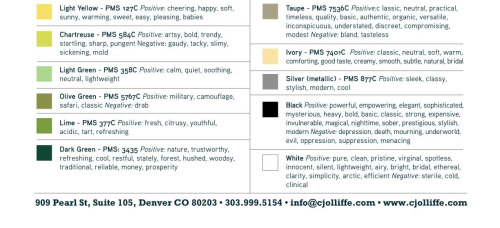
Hi! I am stuck in my writing, in the romance scenes..if i could ask for your help, could you give me some examples for showing, not telling love in an already existing relationship?
Hi :)
Love Language - Showing, not telling love
smiling at each other without reason
listening to each other rant
caring about each other’s health
lots of innocent and not so innocent touches
writing each other notes
giving small gifts without special occasion
making sure to spend quality time together
showing interest in each other’s interests
supporting each other
caring about each others’ lives outside of the relationship
doing something nice for each other
trying to get to know each other's friends and families
taking their load off of them
remembering things they told them
holding hands in public
telling their friends about them
Have fun!
- Jana
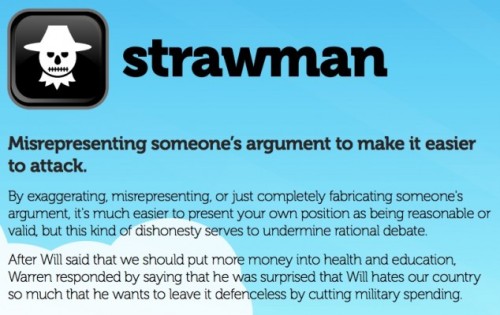
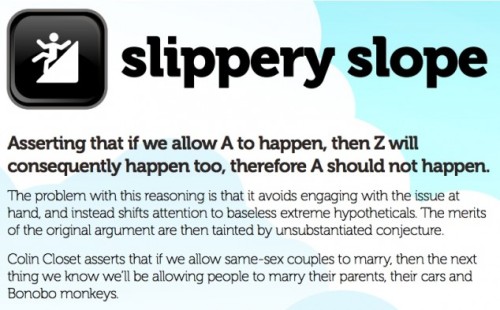
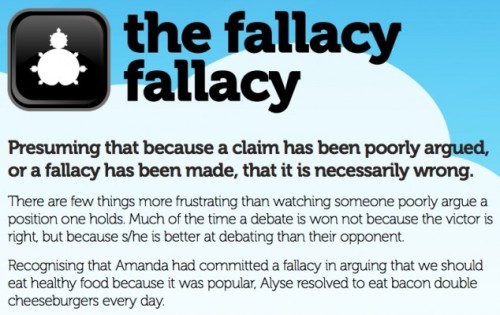
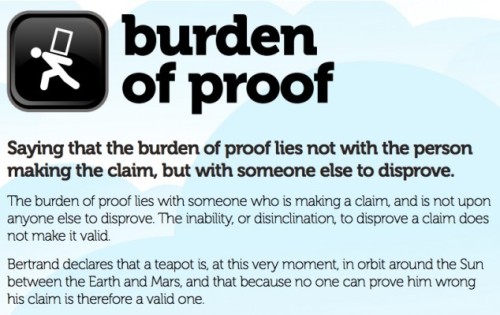
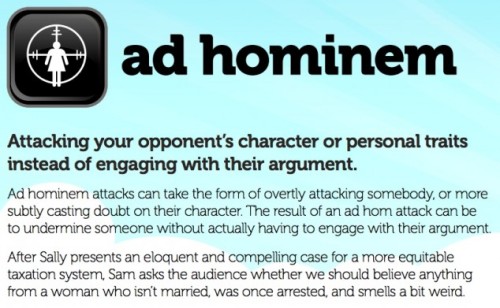
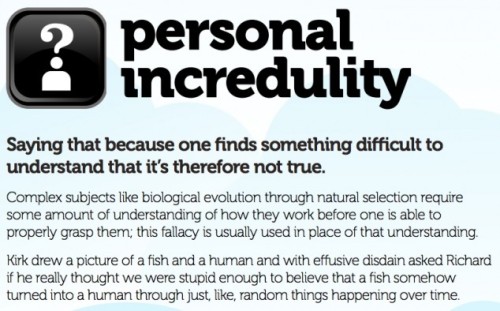
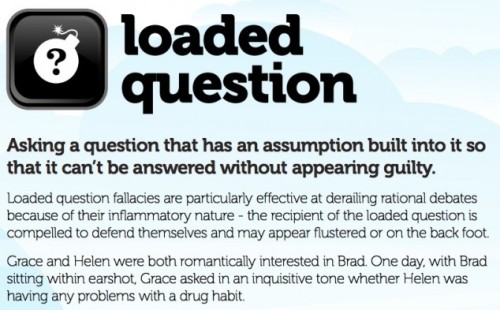
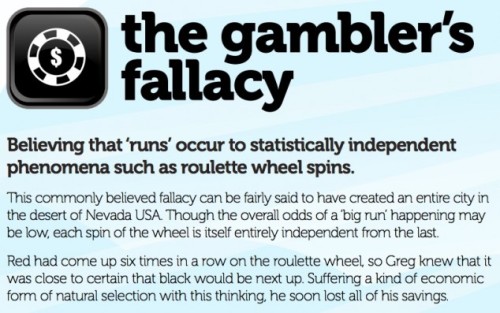
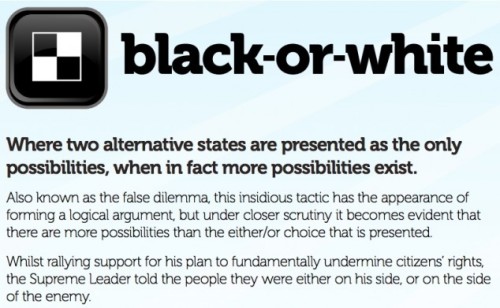
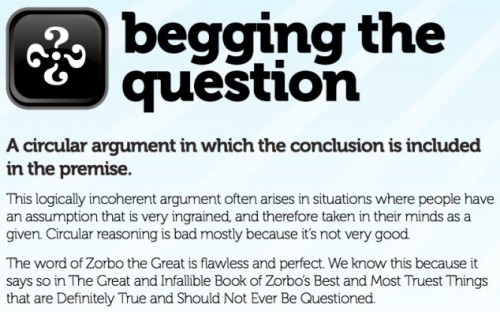
US SUICIDE PREVENTION HOTLINE IS CHANGING ITS NUMBER
Taking effect July 2022, the US Suicide Prevention Hotline will change from 800-273-8255 to the three digit code of 988. Especially with families and communities reeling from back to back tragedies, it is super important to share this information!
Repeat: Starting July 2022, the US Suicide Prevention Hotline will be 988
Smut Thesaurus [18+/NSFW]
By request of the discord! Here’s the smut thesaurus I’ve been building to help me write. It’s even longer now because I included some extra words from The Ultimate Guide to Writing Smut Fic by QuinnAnderson on AO3.
How many words are there for “penis” and “thrust” (that aren’t completely cringey)? Here are all the ones I’ve gathered so far 😂
It’s going under the read-more cut because it’s over 1,000 words in bullet-point form so it is loooong.
EDIT: Here are some additional pointers!
Keep reading
Can you give pointers on how to write smut properly?
The Ultimate Guide to Writing Smut Fic is a great resource! I’ll try giving some of my own, too, tho!
#1 Tip: The key to writing smut is be yourself & have fun!
OK, that’s a joke, but it’s true. Write smut that you enjoy. If you are turned on by what you’re writing, it’s good. Smut is tricky because everyone has different preferences.
For example, some people will hate Dom/sub, while others go out of their way looking for it. Stuff like dubcon, noncon, omorashi, etc. will be more divisive, but even vanilla blowjobs will turn some readers off. So just accept that you can’t please everyone and write for yourself!
Word Choice
Do you call a penis: a cock? shaft? manhood? member? What about lady parts? Some readers will click that back button the minute they see “pussy,” while others won’t read smut that uses any other term.
Some word choices are safer than others. Generally speaking, no one enjoys clinical terms like “penis” or “vagina.” And no one objects to “him” or “her” (i.e. “He entered her”).
If in doubt, the vaguer you are, the less likely it is to turn someone off. I am fond of overusing “warmth” and “heat” for everything (i.e. “He entered her warm depths”). Plus, what is a “heat” anyway? When I write gender-neutral smut, the POV character is always getting their heat or sex stroked, and their entrance penetrated. Vague terms are quite useful!
Here’s a little “smut thesaurus” I made of terms I use or at least don’t find objectionable. Again, you never know what someone might find cringey, and some of them I consider borderline, but there’s nothing on the list that’s universally seen as bad. Like “orbs” for eyes.
Filthiness level
Not all porn is as porny as other porn! Take for example, the same blowjob:
She took him in her mouth, bobbing up and down in his lap.
Or...
Her lips parted around his thick, veiny cock, tasting the salt of his precum on her tongue. Sliding down his shaft until her nose was buried in his dark hairs and his crown struck the back of her throat, she... etc!!
If you’re not sure how to start, it’s OK to do lighter smut that doesn’t get quite so explicit! A lot of people prefer smut that’s more focused on the emotions and less on the graphic details. I definitely started out writing cleaner smut.
Your word choices will also affect the filthiness/tone of a fic. Not everyone wants cocks and cunts everywhere! I’d recommend saving your naughtiest words for your naughtiest, most graphic fics, and fluffier language for fluffier, cleaner fics.
Inspiration!
If you can’t just churn out sexy scenarios on demand...
Read other smutfics/romance novels. I have a whole “smut thesaurus” google doc that I add to every time I see some phrasing that I like. Do not plagiarize entire sentences word for word. But when I see my favorite author use “laving” I’m like... yes. That is a good word for licking. Let me add that to my list of licking words.
Fantasize. Not to get TMI but if you’re stuck on a smut scene... you know. Consider getting the ol’ vibrator out. Or have sex with someone if that’s an option. Cuddle a pillow. Stop stressing over the keyboard and just imagine what would feel good. THEN WRITE IT DOWN SUPER QUICK BEFORE YOU FORGET. I’m always taking notes on my phone.
Porn. Just. Straight-up watch some porn. You’re still responsible for the emotional component, but you’re allowed to steal all of the physical acts from a porn video if you want.
Don’t forget the emotions!!!
Character development and a strong emotional basis are what separates smut fic from porn. The physical act of two people mashing their body parts together in different configurations loses its interest after awhile. For me anyway. I need a STORY!
Why are they having sex? How do they feel about the sex they’re having? Tell me how the sex is an expression of how much they care about each other! Or show me how their sexual connection is what makes them start to fall in love! Show me they’re afraid they’re not good enough, but the way their lover moans their name fills them with such a warm, trembling feeling! Tell me how reassured they are when their partner holds their hand! Or how safe they feel with their solid weight pressing them down into the mattress. Or how wild and arousing it is to be with such a fiendish villain! How powerful it feels to have an arrogant, wealthy man begging for you on his knees! How all your insecurity slips away when you give up all control to a trusted partner. How amazing it feels to be that partner, and be trusted. Slow, comforting “you had a bad day and I’m taking care of you” sex where they comb their fingers through your hair. Awkward first times!
There are so many different feelings to be explored with sex!
(Ex. Trope-and-Tales devastated me with a smut scene where the arrogant jerk guy desperately wanted affection and kept trying to have sensual, loving sex, but she was angry at him and wanted rough hate-sex, and it was disappointing for both of them and heartbreaking. I’m still not over it. I’ll never be over it. So, you know. Kudos to what you can convey with sex.)
So really, if you put the emotions front and center, you can’t go wrong. Smut is like any other part of writing... just with more body parts mashing together.
Romance Masterpost
How to write it
How to write romance
Love Language - Showing, not telling love
Honeymoon
Slow burn
Forbidden Romance (+ prompts)
Reasons for a break-up while still loving each other
How to create quick chemistry
How to write enemies to lovers (+ prompts)
How to write lovers to enemies to lovers
Arranged matrimony for royalty (+ prompts)
Date gone wrong
Academic rivals to lovers
Romantic Fall Date Ideas
How to write a polyamorous relationship
Prompt Lists
Romance Part I
Romance Part II
Bad ones, unrequited, break-up Part I
Bad ones, unrequited, break-up Part II
Two smart and also stupid people in love
Push and pull romantic prompts
Co-workers - Hate to love
Lovers to enemies
Jealousy + Things said during sex prompts
Moving in together
Writing Gender-Neutral Smut [18+]
Yes, you can write sex scenes in your reader-insert fic without specifying gender!
It’s not perfect. Reader generally has to be the one being penetrated, since doing the penetrating kind of gives away the presence of dick (though you can, if you’re sly, leave room for it to be pegging). There are some limitations to how graphic gender-neutral smut can be, since you’re dancing around the specifics of the genitals involved. But remember, everyone…
has a throbbing, aching arousal between their thighs that can be sucked, stroked, licked, and circled with a tongue
has a tight entrance that can be stretched open little by little
glistens when they’re slicked with lube (or their partner’s saliva)
can be filled, thrust into, and fucked into the mattress
rolls their hips as they ride their partner
can receive anal and give oral
moans and pants, chest heaving, covered with a thin sheen of sweat
has nipples that harden and send waves of pleasure through their body
has fingers to slip between their partner’s lips
fills the room with the lewd sounds of flesh on flesh
has a sensitive spot inside that makes them melt when their partner rubs against it
wails out their partner’s name as they fall apart
arches their back as they come
ruins the sheets with their release
Yeah. It can still be pretty hot.
Here are some tips I keep in mind when writing gender-neutral smut. Please let me know if anything sounds wrong!
Keep reading
THERE MUST BE A PARAGRAPH BREAK EVERY TIME A NEW CHARACTER SPEAKS
THIS IS NOT OPTIONAL
NO ONE WANTS TO READ ONE BIG BLOCK OF TEXT JESUS CHRIST
YO WRITERS
Stop what you’re doing right now and go write 3 sentences of your story.
Every time you see this, write 3 lines.
Reblog so other writers will do the same, let’s finish these damn stories.
Okay I'm not sure if you've posted something like this before but how do I go about designing a character that I have the foundation of in my head but nothing else? Where do I start? How do I keep momentum going?
Hmm. I think I have the perfect set of resources for you:
Giving Characters Bad Traits
Having Trouble Connecting To Your Characters?
Writing People Of Color
Writing Children
Useful Writing Resources
Useful Writing Resources II
Resources For Describing Characters
Resources For Creating Characters
Ways To Fit Character Development Into your Story
Writing Good Villains
Interview As Your Character
31 Days Of Character Development: Wordsnstuff May Writing Challenge
Let me know if it helps, and if there’s still some things you need some extra input on!
–
If you enjoy my blog and wish for it to continue being updated frequently and for me to continue putting my energy toward answering your questions, please consider Buying Me A Coffee or supporting me on Patreon.
Wordsnstuff also has a newsletter, which you can subscribe to by filling out the pop up on wordsnstuffblog.com.
I’d also really appreciate it if you would check out my separate blog dedicated to my current work in progress. I also run writing sprints over on snapchat.
Writing Exercises for Stretching Your Style Muscles
There’s a lot of writing advice on the internet, and a lot of writing prompts, but something I see relatively little of is an idea of how to actually practice.
The thing about learning a skill is that it requires practice – but practicing will only get you so far if you’re just doing the same thing over and over. you might get better at doing that specific thing, but it can seem really difficult to get over a specific hurdle to accomplish some new thing you’ve never tried. I think a really common frustration is wanting to do a thing, and knowing what your end goal looks like, but not knowing actually how to accomplish it.
So that’s where practicing specific skills can really help you to feel more comfortable with your abilities.
Here are some skills exercises I recommend experimenting with to gain proficiency and comfort in writing things.
—–
Write the Same Scene from Multiple POVs
Write a scene in 3rd person POV. Then go back and rewrite it from scratch in 1st person. Repeat for a 3rd person omniscient. Go deeper than just swapping out pronouns. Think: How does this scene change if I’m writing through the eyes of a single character vs over their shoulder? How does this scene change if I’m narrating the events through Character B instead of Character A?
—-
Write a Scene in Present Tense
Present tense bumps up the immediacy level of whatever you’re writing. I think it also helps to break you from more passive sentence constructions. Try taking a scene you’ve written and rewrite it in present tense. Combine it with the above – try switching a 3rd person past to 1st person present, or even try writing in 2nd person.
—–
Try Mimicking Another Writer’s Style
Sit down with a piece of writing from an author you enjoy, and pay attention to the writing itself. Ignore the plot and characters and story elements – look at just the nuts and bolts of vocabulary choices and sentence construction. Try to pick it apart. Is there a specific way the author tends to use commas? Certain words, or types of words, that they use more often? Longer sentences or shorter ones? Longer paragraphs or short? How is white space handled?
Study that and make yourself a little cheat sheet if that’s helpful to you. Then try writing a short piece – just a couple paragraphs, even – in their writing style.
—-
Describe an Entire Scene Without Using Visual Description
Imagine you’re writing a blind character, if it helps, or someone who’s been blindfolded. Describe a whole scene built entirely around the way things sound, smell, taste, feel. Try to make it clear what’s happening through description alone.
—–
Eliminate All Words like “Thought” or “Felt”
Write in deep-3rd or 1st person without any filter words. Make a character’s opinions and emotions obvious through the way things are being described without explicitly saying what they’re thinking or feeling. If you struggle with this, it might be easier to start in first person – write as a diary entry or even a Tumblr post from that person’s perspective – and then try it in 3rd person after you’ve had a bit of practice.
——-
Set Yourself a Specific Goal, and Write a Drabble to Achieve it
When I wrote “Happy Ending,” my entire goal was to write something that was highly descriptive in the most viscerally gross way possible. When I wrote “Mothman,” it was an exercise in writing something sexualized without explicitly being sexual, in the most disturbing way possible.
This is an exercise in word choice. It’s an excuse to bust out your thesaurus, not to sound fancy, but to nail a specific meaning. It’s also an exercise in choosing what details to focus on and which to exclude.
One way to approach this exercise is to describe something common and mundane that you’ve experienced, and write it in several different ways. Let’s say, eating a sandwich. How can you make eating a sandwich sound sexy? How can you make it sound disgusting? Which details do you focus on, and which do you omit? What words do you use to evoke the meaning you’re looking for?
—————————————————————
I hope these writing exercises give you some inspiration on things to try out to flex your creative wings a bit!
Some words to use when writing things:
winking
clenching
pulsing
fluttering
contracting
twitching
sucking
quivering
pulsating
throbbing
beating
thumping
thudding
pounding
humming
palpitate
vibrate
grinding
crushing
hammering
lashing
knocking
driving
thrusting
pushing
force
injecting
filling
dilate
stretching
lingering
expanding
bouncing
reaming
elongate
enlarge
unfolding
yielding
sternly
firmly
tightly
harshly
thoroughly
consistently
precision
accuracy
carefully
demanding
strictly
restriction
meticulously
scrupulously
rigorously
rim
edge
lip
circle
band
encircling
enclosing
surrounding
piercing
curl
lock
twist
coil
spiral
whorl
dip
wet
soak
madly
wildly
noisily
rowdily
rambunctiously
decadent
degenerate
immoral
indulgent
accept
take
invite
nook
indentation
niche
depression
indent
depress
delay
tossing
writhing
flailing
squirming
rolling
wriggling
wiggling
thrashing
struggling
grappling
striving
straining
The word frequency counter allows you to count the frequency usage of each word in your prose. Also try the Phrase Frequency Counter
Smile (writing references)
(So I was doing research for myself, but I thought that it might be useful.)
Adjectives for Smile
radiant; broad; beautiful; sexy; lovely; rustic; uneasy; gracious; seductive; warm; disarming; regretful; winning; surprised; bitter; reminiscent; whimsical; boyish; girlish; wreathed; metallic; faint; apologetic; affectionate; sweet; amiable; solitary; pitying; ridiculous; quizzical; spicy; special; contagious; fawning amused; icy; wistful; courteous; crafty withering; beaming; dazzling; ravished; enormous uncontrolled; sickly; sly; devilish; maternal; eager naked; frank; joyous; complacent; brilliant answering; forced; angry; sympathetic wanton; contemptuous; deadly; sad; simulated; audible; illumined; parting; approving; ironical; mocking; sudden; indulgent; welcoming; irradiating; agreeable; restrained; watery; rare; playful; superior; arch; perpetual; innocent; sparkling; big; somber; polished; responding; irrepressible; religious; peculiar; convenient; everlasting; tolerant; vapid; priceless; vague; racked; complicated; smart; polite; murderous; disdainful sunny; indomitable; sinister; diabolical; complaisant; dim; patient; haughty; endless; rapid; passing; benign; lurid; crooked; placid; hot; grave; malicious; incredulous; timid; bland; provocative peerless; vivacious; mellow; wan; new quiet; calm; abrupt; loving; sagacious; cautious; buoyant; greasy; sardonic; conciliatory; sidelong; nasty; dawning; grim; ironical; false; meaning; sustaining; saucy; atoning; cynical; prodigal; charming; natural indifferent; tolerant; wry; little; visible mournful; naughty; weary; patronizing; languid deprecating; fitful; humorous; sarcastic; mutual; idiotic; frigid; hospitable; doubtful; ingratiating counterfeit; curious; mischievous; childlike exultant; saturnine; speculative; pensive immutable; condescending; pert; impish roguish; ghastly; rueful; hollow; unctuous inane; joyless; wild; satirical; reassuring slow; hideous; flattering; listless; parting fleeting; engaging; severe; immortal; insipid; moonshine; fascinating; facile; beatific; restless; scornful; blossomed; wondering; moony; senile; ambrosial; covert; airy; incisive; faded; shy; social; angelic; envious; debonair; bashful; artificial; waking; antiseptic; mischievous; paternal; dubious; malevolent; roguish; hungry; pale ready; clear; thoughtless; gentle; infectious conscious; timorous; haughty; frequent backward; enamored; obnoxious; pallid derisive; beguiling; excited; brittle; smarmy; conceited; sneering; wide; rascally; timid; meek; reluctant; courageous; nervous; kind; involuntary; smothered; ardent; brave; beaming; glowing; incandescent; inviting; fake; phony; imploring; practiced; delightful; endearing; cheerful.
Verbs for Smile
achieve—; answer with—; bestow—; cloud—; conceal—; crinkle into—; extinguish—; extract—; flash—; grant—; illuminate with —; induce—; loosen—; manage—; mock— permit—; provoke—; quench—; repress— rouse—; share—; shed—; suppress— throw—; toss—; wear—; wreathe in— wrinkle into—; —abashes; —basks; — confronts; —contorts; —creases; —crinkles; —deludes; —departs; —disconcerts; —disparages; —fades; —flashes; —flickers; —hides; —hovers; —lightens; —lingers; — mantles; —plays; —reassures; —renders; —reveals; —twitches.
Adverbs for Smile
delightedly; approvingly; shrewdly; affectionately; reluctantly; ecstatically; whimsically; tolerantly; radiantly; indulgently; benevolently; tremulously;grimly; sympathetically; blandly; beamingly; wanly; auspiciously; impudently; disarmingly; mischievously; magnanimously; unctuously; contemptuously; lewdly, winsomely; wryly; languidly; artificially; automatically; apathetically; benignly; facetiously; superficially; demurely; guilelessly; angelically; affably; ambiguously; coyly; cynically; cunningly; exultantly; exaggeratedly; cryptically; ruefully; benevolently.
Because We're More than Eyes and Hair!
I think 90% of writers will agree that in their first drafts of their first pieces, they’d describe a character like “she had blonde hair and green eyes” and leave it at that. I’m guilty of it, I’ll admit. But why not have some great, specific descriptions that flesh out your characters and how others perceive them?!
A quick note about eyes: In all honesty, eye color isn’t always apparent. Eyes may look dark from a distance, and you only realize they’re a deep blue when you get closer. Don’t feel like you have to mention eye color right away. It can be something mentioned later, when your characters have a soulful heart to heart.
Btw, I threw this list together in about 10 minutes so I’m sure there are other things that could be added. Feel free to comment or message me, and I’ll add them to the master list.
Hair
Long
Short
Wavy
Curly
Frizzy
Straight
Choppy
Thick
Thin
Braided
Tied up
Loose
Wild
Face
Long
Narrow
Wide
Round
Oval
Eyes
Round
Narrow
Squinty
Deep-set
Small
Beady
Oval
Nose
Narrow
Pinched
Wide
Flat
Crooked
Hooked
Pointed
Large
Dainty
Cheeks
Rosy
Ashen
Ruddy
Freckled
Round
Gaunt
Pronounced (cheekbones)
Bronzed
Tanned
Dimpled
full
Chin
Sharp
Round
Cleft
Pointed
Jaw
Square
Round
Straight
Strong
Lips
Full
Plump
Thin
Pinched
Body (build, frame)
Slight
Willowy
Scrawny
Tall
Bulky
Average
Large
Stout
Curvy
Shapely
Straight
Bony
I also claimed stuff like this will help with characterization. I’ll give an example. For a body frame, “scrawny” and “willowy” mean kinda the same thing—someone with a thin, slight built. If your character is describing the girl they’ve had a crush on forever, they’d probably use a word like “slender” or “willowy,” because they’re fond of her. A longtime rival or enemy might stick to words with a negative connotation, like “scrawny” or “bony.” For someone they’ve just met, the terms will probably be more neutral. Consider how your narrator thinks of the person they’re describing, and how that’ll affect the words they use!
I’ll include some examples…?
Ignoring his warning, I stepped back towards Liam and the barely-contained Suni. She was pretty, now that I got a good look at her standing up. She was half a foot shorter than my own 5’6”, with shapely curves hinted at even with her loose clothing. Maybe a bit chubby by today’s toothpick thin standards, but more with muscle than fat. Strong cheekbones and full lips accented her long mahogany face, but it was her eyes that dominated her features. Sharp aqua eyes that were fixed on Kent. If looks could kill.
Kent was back at my side as the knight-armored man turned to face us. Although still young, he had to be at least ten years older than me, with a broad face and warm green topaz eyes staring down a surprisingly dainty nose. Deep, carrot-red hair framed his face. When he smiled, it was kind and genuine, and it dimpled his sun-kissed cheeks.
“Hey, girl,” she said, grinning in a way that showed she was trying to be in with the teen slang. She was blonde like my dad, but shorter and with a little more weight around her neck and cheeks, since she didn’t have to appear on national television all the time. There was also a sparkle to her eyes and an air of carelessness in her frazzled, tied back hair and the dimpled smile of her cheeks—features I’d never see from Dad (frazzled and smiling, I mean), who was always the perfect News Anchor Ethan Cresswell.
Writing Help Masterlist (Part 2 of 2)
Description: Kissing and Smiling
Anonymous asked: I’m having a problem when it comes to describing kisses and smiles without using the word lips and still sound natural. Usually, I don’t mind the word, but it seems like I’ve been using it far too often in my writing, especially when it comes to smiles or smirks. Do you have anything to help with that?
Writing smiles and kisses without using the word “lips” is pretty tricky, but it can be done. Just don’t go overboard in trying to avoid using the word. Lips are crucial to both of those actions, so you can’t avoid them entirely. One thing to keep in mind with describing kisses is that lips touching lips or skin isn’t the only thing going on. Hands are roaming, hearts are speed-thumping, and hormones are going crazy—so just spending a little time on what else is going on will both flesh out and lengthen the scene without having to keep describing what the lips are doing. Smiling, at least, gives us a little more to work with. For one thing, there are multiple ways to indicate that someone is smiling:
grinning
beaming
laughing
giggling
chuckling
simpering
sneering
There are also many ways to describe the face of someone who is smiling:
face brightened
face glowing
eyes lit up/sparkled/twinkled
looking delighted/happy/amused/pleased/satisfied
cheeks dimpled
upturned face
And there are ways to describe what the mouth is doing when someone smiles:
mouth upturned
mouth twitched (quick smile)
mouth quirked/quirked up/quirked at the corners
mouth twists with [emotion]
And, instead of smiling, you could describe other visible aspects of the emotion causing them to smile:
doing things with enthusiasm
a bounce in their step, skipping, dancing
swinging arms, tapping feet
showing interest
happy tears
fist-pump, clapping, moving excited
Also, internal aspects that the person smiling might be feeling:
radiating joy
lighthearted
feeling good
being content
(with thanks to The Emotion Thesaurus for help here…) Here are some additional resources for you: Kissing Scenes How to Write a Kissing Scene via letsvvrite Pucker Up! via WriteWorld 5 Steps to Writing the Perfect Kissing Scene via Miss Literati Describing Character Reactions And Emotions: She Smiled, He Frowned
How to Write a Character Falling Out of Love
How to write a character falling in love is a topic that’s been explored a lot on writing blogs, so when I was recently asked how to write a character falling out of love I felt like it needed a full post. Thanks to natashawattswrites for the question!
A lot of us know what it feels like to be infatuated with someone and then look back on the event later in life and say to ourselves, “why did I ever like that person?” It can sometimes be easy to feel that way looking back on something, but when you’re in the moment it’s harder to explain. How to do you explain the process of falling out of love with someone? How can you let your readers know what your character is feeling? Hopefully these tips will help you.
Here are a few ways to write a character falling out of love:
They will become less interested in the other person
One big way to show that your character is falling out of love is that they start to lose interest in what the other person likes or does. Maybe they find that they like to be alone more often. Where they were once excited to hang out with other person, now they never have the urge to.
They might feel annoyed
Focus on your character’s emotions toward the other person. They might snap at their partner easily. They might get annoyed by things they say. These will all help reveal that they might not feel the same anymore.
There was an event that changed their feelings
A great way to have a character fall out of love is to write in a scene that would explain their changing feelings. Maybe they were cheated on. Maybe they’re suspicious. Maybe they just don’t feel like they connect on the same level.
They might hate the thought of being alone with the other person
One major clue that your feelings have changed for another person is if you hate the thought of having to hang out with them. This might seem like a no-brainer, but we often make excuses for these emotions like “I have a headache” or “I’m just grumpy today”—instead of figuring out why it’s happening so often
They find interest in another person
Another good way to show that your character wants to move on is if they start to become interested in someone else. This might reflect what they’re missing in their current relationship or partnership.
They feel guilty
Sometimes when people fall out of love, they feel extremely guilty about their changing feelings. They might feel like they need to give it another shot or something is wrong with how they’re feeling. Have your character analyze these feelings and try to come to terms with their relationship.
They might be afraid to lose comfort
Many people stay in a relationship that’s not quite working out because they’re afraid of being alone and losing the comfort they have in their current situation. Obviously this isn’t true for all relationships, especially abusive situations, but it can be a major factor for your character. Maybe they’re afraid to move on or they feel like they’re making a mistake.
They might feel relief when it’s all over
A character falling out of love won’t be a completely negative experience. Sometimes ridding ourselves of relationships that aren’t working is a huge relief. Consider these feelings when writing your character. They might be happy to move on and admit that they’re no longer in love (or maybe they weren’t ever in love).
-Kris Noel
41 Emotions as Expressed through Body Language
Found Here x
41 Emotions as Expressed through Body Language unique This list, while exhausting, is soooo not exhaustive; it barely scratches the surface. And each entry could easily become cliché (if it isn’t already). But, it should be enough to get you started. Want more? Start watching people (not in a creepy way), and take notes of what they seem to do when expressing different emotions. Your repertoire of expression will double in no time. PS—do not use these for actual, real-life body language reading; you will fail. These are strictly novelistic.
Hello!!!! Do you have any tips / prompts for slowburn? Or romance in general? It's been a long time since i wrote about love and I think I'm rusty ;;;
Hi :)
Here are some tips for writing slow burn romance.
Slow burn
Slowing it down
make it slow, but not too slow. Give the readers little moments and interactions at first and then show how they develop a deeper connection over time
you need realistic reasons for why they are not together yet
here are two lists of reasons why people break up while still loving each other and for forbidden love that you could both use
Chemistry
make it realistic, a couple with good chemistry needs to be balanced
they need to have similarities to make them connect, but don’t just agree with everything the other one is doing
same goes for contradicting traits, it is important to show the differences and working around them makes for a good partnership, but don’t have them fight constantly
Don’ts
slow burn is often full of mistakes, misunderstandings and problems, but your characters should never do something that is unforgivable for the other person
don’t make one person totally unlikable without a believable redemption arc and the other person to be a sweetheart, because chances are, the readers may not even want them to be together in the end
don’t make the pair dysfunctional without giving the reader reason to believe that they better themselves and their relationship, otherwise the reader will leave the happy ending feeling like this is not going to work out in the long run and is therefore really unsatisfying
Prompts
I don’t have specific prompts for slow burn right now, but check out my romance tag if there is something in there that inspires you. Here are two older prompts I instantly thought of (from this post).
“We don’t have to go quick if you feel uncomfortable. I just need to know that we’re moving somewhere.”
“I just can’t. Not right now.” “That’s ok. Is it alright if I wait for you?“
Have fun!
- Jana
Some idioms and phrases you should know about part I :
Salt of the earth: a very good or worthy person.
Gut-wrenching: making you feel very upset or worried.
Make a spectacle of yourself: to do something that makes you look stupid and attracts people's attention.
Pass muster: be accepted as adequate or satisfactory.
Putty in someone's hands: easily influenced by someone else, excessively willing to do what someone else wishes.
Look before you leap: carefully consider the possible consequences before taking action.
Set the wheels in motion : to do something that will cause a series of actions to start.
Off the books: without being included on official records.
A long Haul: something that takes a lot of time and energy.
An end in itself: a goal that is pursued in it's own right to the exclusion of others.
Night owl: a person who prefers to be awake late at night.
Kick the Bucket: to die.
Alter Ego: a person's secondary or alternative personality immediately or extremely quickly; at once.
Freak of Nature: something or someone that is unusual, rare, or abnormal in some way / To avoid attracting attention to yourself.
Resources for Writing Injuries

Patreon || Ko-Fi || Masterlist || Work In Progress
–
Head Injuries
General Information | More
Hematoma
Hemorrhage
Concussion
Edema
Skull Fracture
Diffuse Axonal Injury
Neck
General Information
Neck sprain
Herniated Disk
Pinched Nerve
Cervical Fracture
Broken Neck
Chest (Thoracic)
General Information
Aortic disruption
Blunt cardiac injury
Cardiac tamponade
Flail chest
Hemothorax
Pneumothorax (traumatic pneumothorax, open pneumothorax, and tension pneumothorax)
Pulmonary contusion
Broken Ribs
Broken Collarbone
Abdominal
General Information
Blunt trauma
Penetrating injuries (see also, gunshot wound & stab wound sections)
Broken Spine
Lung Trauma
Heart (Blunt Cardiac Injury)
Bladder Trauma
Spleen Trauma
Intestinal Trauma
Liver Trauma
Pancreas Trauma
Kidney Trauma
Arms/Hands/Legs/Feet
General Information | More
Fractures
Dislocations
Sprains
Strains
Muscle Overuse
Muscle Bruise
Bone Bruise
Carpal tunnel syndrome
Tendon pain
Bruises
Injuries to ligaments
Injuries to tendons
Crushed Hand
Crushed Foot
Broken Hand
Broken Foot
Broken Ankle
Broken Wrist
Broken Arm
Shoulder Trauma
Broken elbow
Broken Knee
Broken Finger
Broken Toe
Face
General Information
Broken Nose
Corneal Abrasion
Chemical Eye Burns
Subconjunctival Hemorrhages (Eye Bleeding)
Facial Trauma
Broken/Dislocated jaw
Fractured Cheekbone
Skin & Bleeding
General Information (Skin Injuries) | More (Arteries)
femoral artery (inner thigh)
thoracic aorta (chest & heart)
abdominal aorta (abdomen)
brachial artery (upper arm)
radial artery (hand & forearm)
common carotid artery (neck)
aorta (heart & abdomen)
axillary artery (underarm)
popliteal artery (knee & outer thigh)
anterior tibial artery (shin & ankle)
posterior tibial artery (calf & heel)
arteria dorsalis pedis (foot)
Cuts/Lacerations
Scrapes
Abrasions (Floor burns)
Bruises
Gunshot Wounds
General Information
In the Head
In the Neck
In the Shoulders
In the Chest
In the Abdomen
In the Legs/Arms
In the Hands
In The Feet
Stab Wounds
General Information
In the Head
In the Neck
In the Chest
In the Abdomen
In the Legs/Arms
General Resources
Guide to Story Researching
A Writer’s Thesaurus
Words To Describe Body Types and How They Move
Words To Describe…
Writing Intense Scenes
–
Masterlist | WIP Blog
If you enjoy my blog and wish for it to continue being updated frequently and for me to continue putting my energy toward answering your questions, please consider Buying Me A Coffee, or pledging your support on Patreon, where I offer early access and exclusive benefits for only $5/month.
Shoutout to my $15+ patrons, Jade Ashley and Douglas S.!
What you can say instead of the word beautiful:
lovely,
charming,
delightful,
appealing,
engaging,
winsome
ravishing,
gorgeous,
heavenly,
stunning,
arresting,
glamorous,
irresistible,
bewitching,
beguiling
graceful,
elegant,
exquisite,
aesthetic,
artistic,
decorative,
magnificent
55 Words to Describe Someone's Voice
I was sitting on the computer last night trying to be productive and actually write something. My first sentence included the character listening to a voice through an intercom and my first thought was, “What kind of voice is it?"
So, naturally, I found myself googling the different ways to describe a voice. I present to you my findings! I hope you all find it useful.
100 Words for Facial Expressions
1. Absent: preoccupied 2. Agonized: as if in pain or tormented 3. Alluring: attractive, in the sense of arousing desire 4. Appealing: attractive, in the sense of encouraging goodwill and/or interest 5. Beatific: see blissful 6. Bilious: ill-natured 7. Black: angry or sad, or see hostile 8. Bleak: see grim and hopeless 9. Blinking: surprise, or lack of concern 10. Blissful: showing a state of happiness or divine contentment 11. Blithe: carefree, lighthearted, or heedlessly indifferent 12. Brooding: see anxious and gloomy 13. Bug eyed: frightened or surprised 14. Chagrined: humiliated or disappointed 15. Cheeky: cocky, insolent 16. Cheerless: sad 17. Choleric: hot-tempered, irate 18. Coy: flirtily playful, or evasive 19. Crestfallen: see despondent 20. Darkly: with depressed or malevolent feelings 21. Deadpan: expressionless, to conceal emotion or heighten humor 22. Dejected: see despondent 23. Derisive: see sardonic 24. Despondent: depressed or discouraged 25. Doleful: sad or afflicted 26. Dour: stern or obstinate; see also despondent 27. Downcast: see despondent 28. Dreamy: distracted by daydreaming or fantasizing 29. Ecstatic: delighted or entranced 30. Etched: see fixed 31. Faint: cowardly, weak, or barely perceptible 32. Fixed: concentrated or immobile 33. Furtive: stealthy 34. Gazing: staring intently 35. Glancing: staring briefly as if curious but evasive 36. Glaring: see hostile 37. Glazed: expressionless due to fatigue or confusion 38. Gloomy: see despondent and sullen 39. Glowering: annoyed or angry 40. Glowing: see radiant 41. Grim: see despondent; also, fatalistic or pessimistic 42. Grave: serious, expressing emotion due to loss or sadness 43. Haunted: frightened, worried, or guilty 44. Hopeless: depressed by a lack of encouragement or optimism 45. Hostile: aggressively angry, intimidating, or resistant 46. Hunted: tense as if worried about pursuit 47. Impassive: see deadpan 48. Inscrutable: mysterious, unreadable 49. Jeering: insulting or mocking 50. Languid: lazy or weak 51. Leering: see meaningful; also, sexually suggestive 52. Meaningful: to convey an implicit connotation or shared secret 53. Mild: easygoing 54. Mischievous: annoyingly or maliciously playful 55. Moody: see sullen 56. Pained: affected with discomfort or pain 57. Pallid: see wan 58. Peering: with curiosity or suspicion 59. Peeved: annoyed 60. Petulant: see cheeky and peeved 61. Pitying: sympathetic 62. Pleading: seeking apology or assistance 63. Pouting: see sullen 64. Quizzical: questioning or confused 65. Radiant: bright, happy 66. Roguish: see mischievous 67. Sanguine: bloodthirsty, confident 68. Sardonic: mocking 69. Scornful: contemptuous or mocking 70. Scowling: displeased or threatening 71. Searching: curious or suspicious 72. Set: see fixed 73. Shamefaced: ashamed or bashful 74. Slack-jawed: dumbfounded or surprised 75. Sly: cunning; see also furtive and mischievous 76. Snarling: surly 77. Sneering: see scornful 78. Somber: see grave 79. Sour: unpleasant 80. Stolid: inexpressive 81. Straight-faced: see deadpan 82. Sulky: see sullen 83. Sullen: resentful 84. Taunting: see jeering 85. Taut: high-strung 86. Tense: see taut 87. Tight: see pained and taut 88. Unblinking: see fixed 89. Vacant: blank or stupid looking 90. Veiled: see inscrutable 91. Wan: pale, sickly; see also faint 92. Wary: cautious or cunning 93. Wide eyed: frightened or surprised 94. Wild eyed: excited, frightened, or stressful 95. Wistful: yearning or sadly thoughtful 96. Withering: devastating; see also wrathful 97. Woeful: full of grief or lamentation 98. Wolfish: see leering and mischievous 99. Wrathful: indignant or vengeful 100. Wry: twisted or crooked to express cleverness or a dark or ironic feeling
